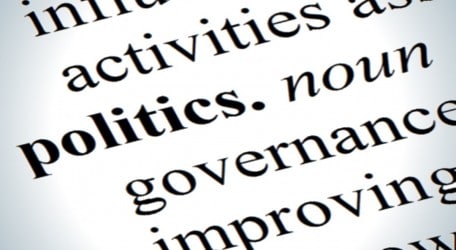
It IS about politics; it always is
This article first appeared in Malta Today
I have noticed a growing tendency for people to preface any comment they make with the disclaimer, “this is not about politics”.
It is clear why they do this: because there are too many small-minded party diehards around, only too ready to pounce, who only know how to view issues and people through their own lens. They categorise everyone into small pigeon-holes labelled ‘blue’ and ‘red’, so those who are moderate and open-minded understandably do not want to be tarnished by any such labels just because they happen to agree or disagree with something the Government or the Opposition does or says.
However, I think what people actually mean when they say, ‘this is not about politics’ is that it is not about partisan politics. In other words “I am not saying this because I love/hate PN or love/hate Labour, but simply as a concerned citizen”. It is for this reason that so many do not comment about politics at all on a public forum, even though they hold very strong views, and are more comfortable expressing themselves privately. In the world of social networks and the tangled web of FB friends and acquaintances, it is also not always easy making your way through the minefield of which friends of yours support which party (unless you only add friends who think and vote exactly like you). Conscious of this, many feel it is best to stay away from political issues altogether, and I really don’t blame them.
In fact, I can completely relate to this reasoning because for a long time I felt like that as well. Although I have been working in journalism for quite a long time, I only started writing about politics in the year 2007 – before that I deliberately steered clear, preferring to write about social issues, and just everyday observations. I must have carried out hundreds of interviews in my day, but I can count the number of politicians I have interviewed on the fingers of one hand, despite receiving countless requests from their PROs. The reasons were clear in my mind: I figured they had more than enough exposure, their faces are shoved down our throat at every turn, and the world should not revolve around them.
Politics and politicians seemed to dominate everything and I felt there was more to living in Malta than just that.
I distinctly remember a time when as soon as people started talking ‘politics’ I would mentally switch off and I would edge away as fast as I could. It was too much, unbearable even, and it was near to impossible to have a decent conversation anyway as it would inevitably descend into the two tribes mentality.
I have to admit that I was also loathe to dip my toe into the murky waters of political intrigue because I knew that once one starts writing about politics, it is like entering a lion’s den and no matter what you say, you are going to step on toes and be disliked by half the nation. For many readers as well as politicians and pundits, it was clear they were going to make it their mission to pin down my own political leanings, which for some people seems to be all that matters. Dik magħna? Mhux magħna? Who cares?
Eventually I realised, however, that avoiding the topic altogether did not make sense, because the way the country functions (or doesn’t) and our quality of life on an every day basis, is directly touched and inextricably linked to the decisions made by those at Castille. Every single aspect of our lives is affected by politics, but not in the sense that we have to categorise it as a Nationalist or a Labour decision but in the sense that some politician in some boardroom sat around with his advisors and came up with some idea or plan. (Unless they woke up one fine morning and the idea just popped into their heads and they then simply gathered enough people around them to agree to put the plan into action).
I understand that for some it is a completely alien concept, but if everyone had to carry out an exercise in which they made a list and just left out which party did what, and simply classified the decisions into whether they were good for the country or not, they would probably be surprised by their own results. They would probably find that both parties in their day have carried out much-needed social and economic reforms, and that both parties have made major screw-ups. Why is it so difficult to just say so?
The answer to that is that many do not support a party for any ideological reason but purely because they were born into a PN or Labour family which has injected them with decades of brainwashing as to where their vote ‘belongs’. If you had to ask them what their party stands for on crucial issues, what its ethos is, and why they identify with it, you would be met with a blank stare. If you had to ask voters where they would place themselves on the political spectrum when it comes to gay marriage, divorce, a free market, capitalism and social welfare, they would start questioning their automatic political allegiances more.
And it is precisely because I believe that a political party should be in tune with one’s ideology that I will continue to criticise this Labour administration as long as it keeps refusing to take heed of our very real concerns, and because it has morphed into a weird version of a right-wing party which only cares about business and money, rather than the ordinary people in the street. “Il-partit tal-ħaddiema” …remember them?
- July 26, 2019 No comments Posted in: Hot Topics Tags: Labour, politics





